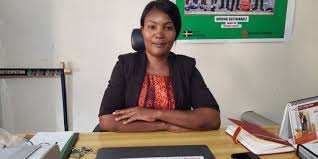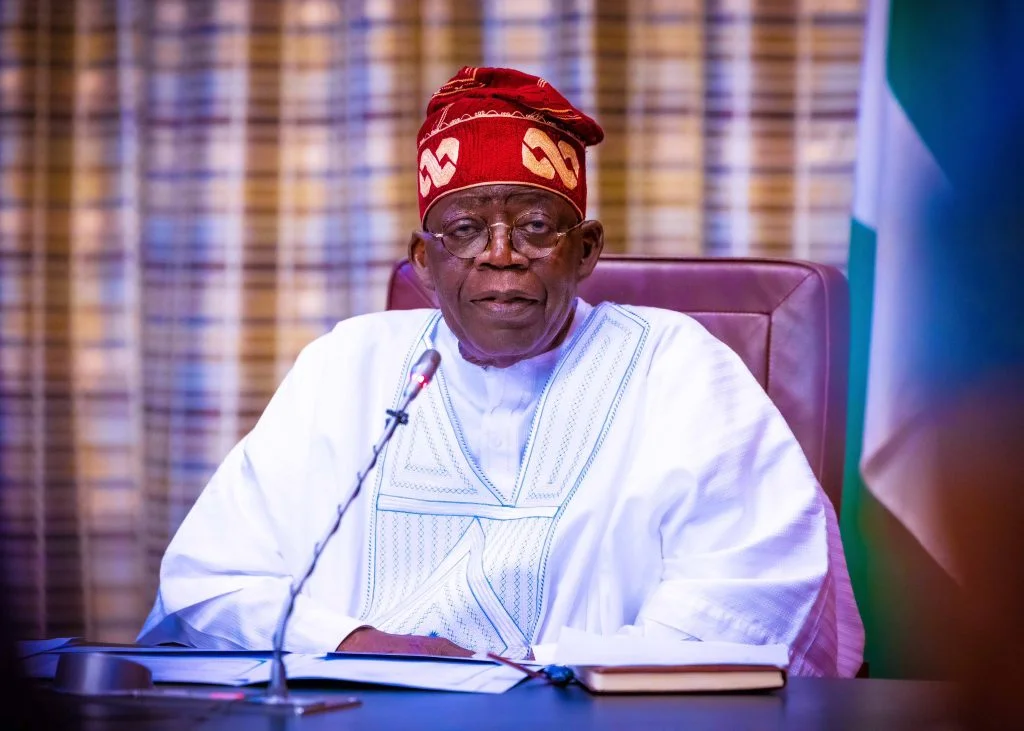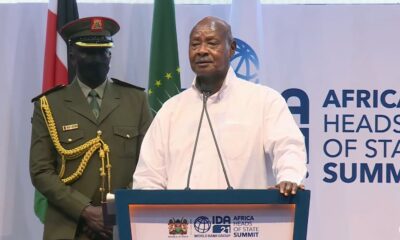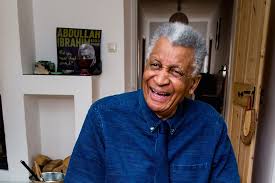Behind the News
Behind the News: All the backstories to our major news this week
Published
4 months agoon

Over the past week, there were lots of important stories from around the African continent, and we served you some of the most topical ones.
Here is a rundown of the backstories to some of the biggest news in Africa that we covered during the week:
1. Anti-graft agency exposes Buhari’s ‘untouchable’ Minister
When Sadiya Umar-Farouk was appointed by former Nigerian President Muhammadu Buhari to head the newly created Ministry of Humanitarian Affairs, Disaster Management and Social Development, many Nigerians wondered how she managed to get such a plum position going by her background.
It was suggested by some that the only criteria for her getting the job was her closeness and loyalty to Buhari all through the years he had tried and failed to win the presidential election.
The years that Umar-Farouk spent in office were marked by allegations of fraud in her office, including her controversial claim that the ministry spent a whopping N80 billion to feed school children during the Covid-19 lockdown when schools were closed.
As controversial as that revelation may sound, a new expose by Nigeria’s anti-graft agency, the Economic and Financial Crimes Commission (EFCC), has indicted the former minister after a N37 billion fraud was allegedly discovered in the ministry.
According the commission, the money was laundered, transferred from the Federal Government’s coffers and hidden in 38 different bank accounts in five leading commercial banks.
The EFCC also discovered that a contractor with the ministry, identified as James Okwete, was the conduit for the money laundering job.
Okwete, on receiving the funds, allegedly transferred N6.7 billion to Bureau De Change Operators, withdrew N540 million in cash, purchased luxury cars with N288 million, and bought luxury houses in Abuja and Enugu State with N2.5 billion.
The EFCC report further stated that 53 companies were traced to Okwete who was also said to have used 47 of the companies to lift Federal Government contracts amounting to N27.6 billion, as well as being linked with 143 bank accounts in 12 commercial banks in which 134 accounts are corporate accounts linked to different companies.
With the expose out in public domain, Nigerians are waiting to see if she would be prosecuted and made to refund the humongous amount of money stolen from under Buhari’s nose if found guilty.
2. ‘Honeymoon is over, get down to work,’ party leader tells Zambian President
Many leaders in Africa have the tendency of blaming previous administrations whenever they get into office instead of settling down to the task in front of them.
Some, like President Hakainde Hichilema of Zambia, would spend their entire tenure crying foul over the misadventure of their predecessors.
But the leader of opposition party, New Heritage Party (NHP), Chishala Kateka, has called on Hakainde to stop blaming the past regime of the Patriotic Front even after spending over two years in office.
According to Kateka, Hakainde should know that the honeymoon is over and a six-month grace given to him by Zambians had elapsed long ago, and he is expected to do the work he was voted for.
Kateka, in a statement, said the president and the ruling United Party for National Development (UPND) had so far wasted two years and four months “blaming past administrations and perceived political enemies” for the poor state of the country’s economy.
“In change management, there is something that is called “The Six Months Rule”. That means that when you take over a role, you are at liberty to blame your predecessor for all that goes wrong,” Kateka said in the statement addressed directly to President Hichilema.
“After that period, the country is now squarely within your hands and you must take the blame when anything goes wrong as the ‘honeymoon’ is now over,” Kateka stated.
“Pointing to predecessors, for all of UPND’s failings, is such a tired tactic. As Zambians, we are frankly tired of this and are looking for performance,” Kateka lamented.
3. Moroccan captain Romain Saiss becomes Netflix star
The charismatic captain of the Moroccan national team, Romain Saiss, joined the likes of Lionel Messi, Cristiano Ronaldo, Thiago Silva, and other top class world stars to be part of Netflix’s documentary on the 2022 FIFA World Cup in Qatar.
The Netflix documentary series titled, “Captains of the World Cup”, was filmed during the World Cup with the participation of captains from several competing teams, including Saiss, who led Morocco to the semi-finals of the world cup.
According to the global streaming giant, the “Captains of the World Cup” series recounts some of the most gripping moments of the 2022 FIFA World Cup with exclusive footage and access.”
“Netflix’s cameras followed the teams at close quarters, among which was the Moroccan team, with Saiss a central figure, alongside Messi, Ronaldo, and Silva.
“With full access from the dressing room to the pitch, the Netflix crews were able to follow the Atlas Lion everywhere.
“Access-all-areas filming of Saiss, who was an injury doubt for the France match after being stretchered off injured against Portugal, is expected to be the most compelling storyline”, it added.
The spotlight on Saiss, and ultimately the Moroccan national team, has once again highlighted the development and growth of football in the North African country and the deliberate efforts of the government to put sports in the forefront.
Between 2022 and 2023, Morocco has hosted almost all the big soccer tournaments in African, qualified for the FIFA Women’s World Cup, and will be part of the countries to host the FIFA World Cup in 2030.
4. Another of Eto’o’s past catches up with him
The timeless maxim that says “the evil that men do lives with them” was once again on play in the life of former Cameroonian striker and captain, Samuel Eto’o, after one of his estranged daughters from a fling with an Italian lady dragged him to court for failing to pay “maintenance fees” to her.
The 21-year-old lady, Annie Eto’o, who is the product of the relationship with Anna Maria Barranca in 2002
while the Cameroonian FA President was playing for Inter Milan, had opened the case against him for failing to pay up a “maintenance fee” of €10,000 (£8,600) ordered by a Spanish court earlier in the year.
Eto’o, a former Barcelona and Chelsea striker, has been involved in the legal tussle filed by Annie after he was forced to finally admit he fathered her as the result of an affair with an Italian lady, but had refused to be part of her life.
After initially denying being Annie’s father, a DNA test in 2015 confirmed that he was her biological father, with a judge ordering him to pay the amount to her, but he bluntly refused to comply.
This is not the first time Eto’o will be dragged into cases of abandonment, as another of his children, had, in July, dragged him to a court in Spain on grounds of abandonment and neglect.
The Spanish daughter, Erika do Rosario, had accused Eto’o of failure to recognize her as his biological daughter and pay up in child support.
The case was eventually settled with an agreement for Eto’o to pay Erica €90,000 for unpaid maintenance pensions.
5. Olamide, from the Ghetto to Street King
It was a good week for Nigerian rapper and owner of YBNL record label, Olamide Adedeji, popularly known as Olamide, after global streaming platform, Spotify, recognized him as the most influential “Street Pop Artiste” of his generation.
The accolade, which was bestowed on Olamide meant that he had moved from the ghetto to become the undisputed King of the Street, a testimony to his staying power in the game and ability to fuse ground rap music with local slangs which would easily resonate with his fans.
Spotify’s West African Editor,
Benewaah Boateng, who poured encomium on Olamide, also gave him credit for “the undeniable rise of the sub-genre, Street Pop, in Nigeria” with “Olamide standing out as the most influential artiste propagating the genre.”
“Olamide is the most influential street pop artiste of his generation, consistently praised for his role in elevating street pop to mainstream recognition as a distinct music genre,” Boateng said.
“Since the debut of his hit single, “Eni Duro,” he has been a constant cultural force, popularising dance styles like “Shakiti Bobo” and street lingos such as “Baddo Sneh” and “Pepper Dem”.
Indeed, the rise of the Street Pop genre of music in Nigeria can be attributed to the likes of Olamide before the coming of others like Asake, Naira Marley, Zlatan, and lots of up and coming artistes. No one can begrudge the YBNL boss his place in moving from the Ghetto to the Streets to become the king.
You may like
-


Religious leader, Luchile, notes improvements in media freedom but faults online media abuse
-


Clergyman raises concern over abuses associated with digital rights and freedom of expression
-


Conservationist, Kearns, names intolerance and digital media abuse as threats to media freedom
-


Behind the News: All the backstories to our major news this week
-


Former Zambian captain Rainford Kalaba discharged from hospital after near-fatal accident
-


‘Cyber Act fails to protect the vulnerable,’ Student demands media inclusivity for persons with disabilities
Behind the News
Behind the News: All the backstories to our major news this week
Published
4 days agoon
April 28, 2024
Over the past week, there were lots of important stories from around the African continent, and we served you some of the most topical ones.
Here is a rundown of the backstories to some of the biggest news in Africa that we covered during the week:
1. Renewed Hope: Tinubu’s regular sing-song and the sad reality of Nigeria
During the week in review, Nigeria’s President Bola Tinubu was once again at his rhetorical best when he pronounced the all the tough policy decisions and reforms he has undertaken since coming into office almost a year are have been in the best interest of Nigerians and the good of the country.
Tinubu who spoke during a bilateral business session with Dutch Prime Minister Mark Rutte at the Hague in the Netherlands, said every of his decisions were taken with the interest of his fellow citizens at heart.
He reiterated that his policies which have caused pains and anguish for Nigerians were in their best interest.
“I am a determined leader of my people. I am ever ready to take tough decisions in the best interest of the people, even if with initial pains,” Tinubu said.
“I have and will continue to take the difficult decisions that will benefit our people, even if there is short-term pain,” he added.
But beyond the regular promises of better days ahead by Tinubu and his team, the reality on ground in the country does not seem to align with so much optimism.
The first sign that things were going to be tough was when Tinubu pronounced the end of fuel subsidy in his inaugural address to the nation on May 29, 2023, without as much of a plan to ameliorate the anticipated economic crisis that was to follow.
Despite later attempts to provide some succour and buffers to cushion the effects of the subsidy removal, things have gone from bad to worse with the cost of living rising through the roof.
Inflation has gone up to an all time high of 30.20% according to the Nigeria Bureau of Statistics while prices of basic goods have gone beyond the reach of the average Nigerians, many who find it difficult to provide for their families.
But to President Tinubu, the pains and hardship Nigerians are currently going through will soon be a thing of the past because, according to him, his “tough policies” would yield positive results in the end.
“We have gone through the worst of the storms. I am unafraid of the consequences once I know that my actions are in the best long-term interests of all Nigerians,” he posited.
Nigerians are indeed waiting patiently for the fulfilment of these promises and are looking forward to a time they will go back to living a normal life again!
2. Discriminatory Chinese supermarket meets its match as Nigerian govt shuts mall
A Chinese supermarket located in the heart of Abuja, Nigeria’s capital, ran into hot water when the Federal Competition and Consumer Protection Commission (FCCPC), shut it down following allegations of discrimination against Nigerian shoppers.
Before the action of the government agency, a report had indicted that the supermarket located within the premises of the China General Chamber of Commerce in Abuja, was in the habit of barring Nigerian citizens from shopping in the mall.
Following the exposè which came with video evidence and investigations carried out by the FCCPC turned out to be true, officials of the agency promptly moved in and shut down the mall.
Director for Surveillance and Investigation of FCCPC, Boladale Adeyinka, who led the team, said they took the action was in response to a viral video showing Nigerians being discriminated against and not being able to get into an Abuja supermarket.
“The essence of the surveillance and investigation that we conducted today is to verify the allegations and the content of that viral video,” she told journalists during the exercise.
That was not the first time foreign business ventures have discriminated against Africans in their own country by refusing them their services.
A few years ago, a Chinese restaurant in Lagos was in the news for refusing to serve a Nigerian couple and it took the intervention of the state government for normalcy to return to the outfit after some Nigerian youth decided to vent their anger on the eatery.
Many Chinese, Lebanese and other companies run by foreigners in Nigeria have been found to discriminate against their Nigerian staff and customers but as usual, the powers that be have always turned a blind eye to such allegations, largely because the business owners have their plugs in the right places while the victims are always at the lower rung of the society.
3. Runaway Binance executive reportedly nabbed in Kenya
It was reportedly a bad day in the office for an executive director of global cryptocurrency firm, Binance Holdings Limited, Nadeem Anjarwalla, who had escaped from lawful detention in Nigeria, as he was arrested in Kenya.
Anjarwalla, a British-Kenyan citizen was arrested on arrival in Nigeria on February 26, along with another Binance official, Tigran Gambaryan, on allegations of tax evasion, money laundering and other charges.
But on March 22, Anjarwalla made an audacious escape from a guest house where he and Gambaryan were being held and was promptly declared wanted with the Nigerian authorities engaging the services of Interpol to help track him down.
The manhunt for Anjarwalla was ended when he was arrested in his hideout by a combination of Kenyan police and operatives of the Interpol.
The Kenya Police Service, in a statement confirming the arrest of the fugitive, said the fleeing Binance executive was arrested in “conjunction with the International Criminal Police Organisation (Interpol) and moves were being perfected for his extradition to Nigeria.
But beyond the arrest of Anjarwalla and the embarrassment it caused the country’s security agencies, a lot of questions have arisen from the episode.
Many Nigerians have continued to wonder how he managed to escape from the so-called safe house he and his colleague were being held.
How could Anjarwalla stage such an escape without the active connivance of some security officials who must have had their palms greased?
How did he manage to get a replacement passport to leave the country since his original passport had been seized by the Economic and Financial Crimes Commission upon his arrest?
Questions, and more questions have continued to rise and Nigerians are waiting for answers, if they will come at all.
4. Zambian CSO blames media polarisation for biased reportage
The Executive Director of a Zambian civil society organisation, Chama Mwansa, has blamed the polarisation of the media for biased coverage and reportage in the country.
Mwansa who is the ED of the Chandarika Women and Youths Foundation, in an interview with Zambia Monitor, said the media was balkanized between private and state-owned media outlets which has led to a bias in news coverage.
“The media plays a crucial role in society. Media freedom allows for comprehensive coverage of various perspectives, whether from the opposition or the ruling party,” she said in the interview.
She also harped on the importance of media freedom, freedom of speech, and digital rights in promoting social and economic development, and emphasized on the importance of media partnerships in facilitating coverage of events.
Mwansa’s observations on the polarisation of the media industry in her country can also be replicated in many African countries where the media is gagged and practitioners are made to look like the dregs of the society.
In many African countries, journalists are seen as dangerous species with many of them treated with disdain. Many journalists in different parts of the continent have been abducted, brutalized and killed for just doing their jobs which have constantly raised the question on the safety and freedom of journalists.
5. Al Ahly, Esperance in clash of titans for CAF Champions League trophy
For the fourth straight seasons, two of Africa’s most successful clubsides, Al Ahly of Egypt and Esperance of Tunisia, will clash in the final of the TotalEnergies CAF Champions League scheduled for next month.
Al Ahly which is the current holders of the title and their long-standing rivals Esperance, booked their places in the final in dramatic fashions to earn their places in the final of Africa’s epic football tournament.
Al Ahly cruised past former champions TP Mazembe of the DRC 3-0 in their two-legged semi final tie, while Esperance defeated another former winner, Mamelodi Sundowns of South Africa, running out with a 2-0 aggregate victory.
Al Ahly, winners of the five of the last seven editions of the CAF Champions League, will be aiming for her 12 trophy when they visit Esperance for the first leg in Rades on May 18, while the Tunisian giants will be gunning for a fifth Champions League title, which clearly puts the two teams as the best in the continent.
The second leg will hold in Cairo a week later, which, on paper, gives Ahly a sense of home advantage.
- But however it turns out, there will surely be fireworks as the two teams battle for the glory in the two-legged final and surely, whichever team comes out tops will be the best for the African continent.
Behind the News
Behind the News: All the backstories to our major news this week
Published
1 week agoon
April 22, 2024
Over the past week, there were many important stories from around the African continent, and we served you some of the most topical ones. Here is a rundown of the backstories to some of the biggest news stories in Africa that we covered during the week:
Nigeria’s big feat against meningitis
Nigeria made a significant step in its fight against the World Health Organization (WHO) announced on Monday that Nigeria is the first country in the world to give out Men5CV, a “revolutionary” new vaccine. People are getting sick more in Nigeria than anywhere else in Africa. They say that the number of cases each year went up by 50% in 26 African countries that are known to have a high risk of meningitis.
Nigeria is the first country in the world to have given this vaccine which protects against five strains of the meningococcus bacteria. The Vaccine Alliance (Gavi) pays for the vaccine and emergency vaccination operations.
In Nigeria, between October 1, 2023, and March 11, 2024, there was an outbreak of Neisseria meningitidis (meningococcus) serogroup C that caused 1742 suspected cases of meningitis, 101 confirmed cases, and 153 deaths in seven of the country’s 36 states. These states were Adamawa, Bauchi, Gombe, Jigawa, Katsina, Yobe, and Zamfara.
Gavi also pays for the global meningitis vaccine stockpile and helps low-income countries get regular meningitis shots. Nigeria is one of 26 countries in Africa where meningitis is very common. It is in an area called the African Meningitis Belt. The number of meningitis cases reported each year in Africa rose by 50% last year.
Being a serious infection, meningitis makes the membranes (meninges) that cover the neurons in the brain and spinal cord swell up. Viral, bacterial, fungal, and parasite pathogens are some of the things that can cause meningitis. Headaches, fevers, and stiff neck are common signs. Bacterial meningitis is the worst kind. It can also lead to septicemia, which is blood poisoning, and people who get it can become severely disabled or die within 24 hours.
Besides Nigeria’s meningitis vaccine campaign, the international summit on meningitis in Paris will be a big step toward ending the disease as leaders will meet to celebrate progress, discuss problems, and decide what to do next.
Britain /Rwanda migration deal remains stuck
Rishi Sunak’s plans to send asylum seekers to Rwanda took another defeat this week when they were turned down again by the upper house of parliament in Britain. The parliament came up with changes that would slow down the policy but not stop it. The leader of the country thinks this will help his party win the next election.
Last year, the British government said it was going to send thousands of refugees back to the East African country. This was done to stop people from trying to get protection by crossing the English Channel in small boats from France. Part of an agreement worth £148 million is the idea.
Despite a Supreme Court’s ruling against the controversial move, Sunak has pushed to enact the law through parliament, praying that British courts should consider Rwanda a safe place to visit and that people should only be able to appeal in very rare situations. Europeans have become worried about people coming in illegally from the Middle East and Africa these days. As of June 2023, a record 45,000 people had flown in small boats across the English Channel.
Since Monday, when the House of Commons turned down the House of Lords’ second set of plans to change the new laws, they tried again. The House of Lords is Britain’s appointed upper house. But it’s not likely that the move will stop the bill from being passed this week. If it does, it will become law.
Ahead of the elections later this year, Sunak has put a lot of political capital into the Rwanda plan. He says it will help him keep his word to stop small boats carrying thousands of people who are trying to get into Britain illegally.
About 14.4% of the UK’s population, or 9.5 million people, were born outside of the UK in 2021. A record 45,000 people, mostly from France, crossed the English Channel in small boats last year. More than 11,000 people have been here so far this year. Getting rid of illegal immigration is one of Prime Minister Rishi Sunak’s top objectives.
Burkina Faso takes further steps from France
West African country, Burkina Faso has continued its diplomatic stance against former colonialist, France as it expelled three French diplomats allegedly being involved in actions against the government. The West African country, under military rule like five others in the subregion in a letter sent April 16 to the French embassy said that the three diplomats, two of whom were named as political advisers, were told they were not welcome in the country and had 48 hours to leave.
Sources quoted by Reuters said the officials were kicked out because they met with people from the public. There have been five coups in the area in the last three years. Most of them were linked to ties with France. The latest coup in Niger could make things harder for food markets in Nigeria and other West African countries, the World Bank said not long ago.
Around the world, rights groups, and other interest bodies claim that the junta restricts the freedom of speech and is scaring off critics while it tries to deal with a security crisis caused by rebels with ties to Iran and Al-Qaeda.
Last year, the government announced that it had suspended the 2018 military accord with France, though it still wanted support in the form of equipment. France deploys about 400 special forces soldiers in Burkina Faso, which the military government rules, but relations have deteriorated and tensions have soared in recent months.
Burkina Faso is one of the poorest in the world, and over the past ten years, a war that started in Mali and spread across the Sahel has killed thousands of people. People in the country are more against France now than they were a few months ago because they think that France’s armed presence has not made things safer, expelling its diplomatic might just be another low in their relations as the wave against the former European colonialists continues across the subregion.
Nigeria: ‘World beater’ Onakoya sets new chess record
Nigerian chess prodigy, Tunda Onakoya began an attempt at a 58 hours play of the game to surpass the world record of 56 hours, nine minutes, and 37 seconds, which was set by the Norwegian duo of Hallvard Haug Flatebø and Sjur Ferkingstad in 2018. Onakoya has broken the record set in 2018 by 56 hours. He also wants to raise $1 million for his charity, “Gift of Chess and Chess in Slums Africa,” which he has used to help vulnerable children in Africa.
For 60 hours straight, Onakoya played in Times Square in New York City to raise money for the schooling of poor children in Africa as he played from Wednesday morning until early Saturday morning, having been inspired by the huge number of people who wanted to see him succeed.
Within Nigeria, Onakoya is well known for starting the Chess in Slums project in 2018 in Ikorodu, which is on the outskirts of Lagos. Often outcast young people, many of whom don’t go to school and work to support their families, can learn to play chess at the organization with the country having one of the highest rates of child absence from school in the world, with more than 10 million kids of school age not going to school.
The Guinness Book of World Records has not yet confirmed the new record. This process can take up to two weeks. Whatever the case, Onakoya’s accomplishment has already had a big effect, showing that even from “corners of disadvantage,” big changes are possible.
EDITOR’S PICK


Religious leader, Luchile, notes improvements in media freedom but faults online media abuse
In this ongoing conversation to amplify voices on media freedoms, freedom of speech, and digital rights, we feature, Maxwell Luchile,...


Video: Uganda’s Museveni urges African leaders to verify true motives behind IMF, W’Bank loans
In this video, Ugandan President, Yoweri Museveni, urged African leaders to verify the true intentions of multilateral lending institutions towards...


Nigerian banks close over two million accounts
At least two million bank accounts have been closed by different commercial banks in Nigeria following the failure of their...


Tanzania’s horticultural industry gets $2.1m grant from TradeMark Africa to boost market expansion
The Tanzanian horticultural industry has recieved a grant of $2.1 million from TradeMark Africa to enable it boost its market...


South African Jazz great Abdullah Ibrahim to embark on world tour at age 90
Renowned South African jazz master and pianist, Abdullah Ibrahim, is set to embark on an unprecedented world tour to celebrate...


Kenya unveils ‘killer-squad’ for Paris Olympics marathon Ahead of the 2024 Paris Olympic
Ahead of the 2024 Paris Olympic Games kicking off in July, Kenya has unveiled a “killer-squad” for the marathon event....


Civil society group says planned online regulation under IBA Act, an affront on media freedom (Video)
Chapter One Foundation Executive Director, Linda Kasonde, says the planned online regulation under the new Independent Broadcasting Authority (IBA) Act...


Clergyman raises concern over abuses associated with digital rights and freedom of expression
Emmanuel Kalulu, a clergy member from the Brethren Christ Church in Choma, has expressed concerns about the misuse of media...


Nigeria’s Dangote refinery set to get valid operating licence
The Nigerian government has revealed that the 650,000 barrels per day Dangote Petroleum Refinery will soon receive a full operating...


US wants UAE, others to cease support for Sudan’s warring parties
The United States wants all countries, including the United Arab Emirates, to stop helping the warring sides in Sudan, the...
Trending
-

 Tech2 days ago
Tech2 days agoVillage Capital partners Norad to launch climate-focused programme in Africa
-

 VenturesNow1 day ago
VenturesNow1 day agoIn 30 years, half of Nigerian biscuit companies went out of business— Manufacturers
-

 Tech21 hours ago
Tech21 hours agoTanzania’s horticultural industry gets $2.1m grant from TradeMark Africa to boost market expansion
-

 Sports22 hours ago
Sports22 hours agoKenya unveils ‘killer-squad’ for Paris Olympics marathon Ahead of the 2024 Paris Olympic


